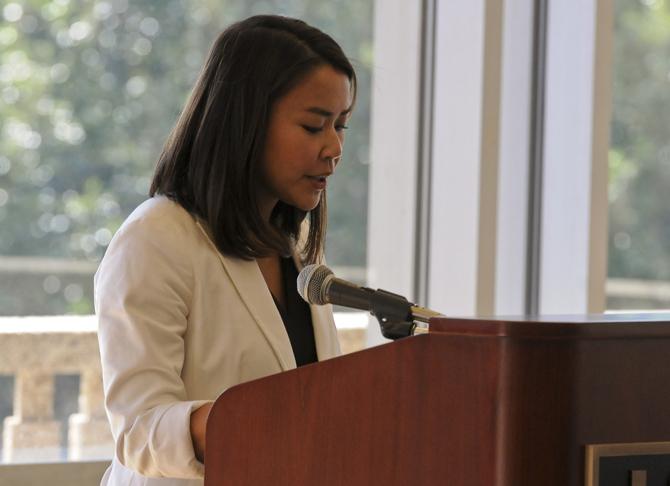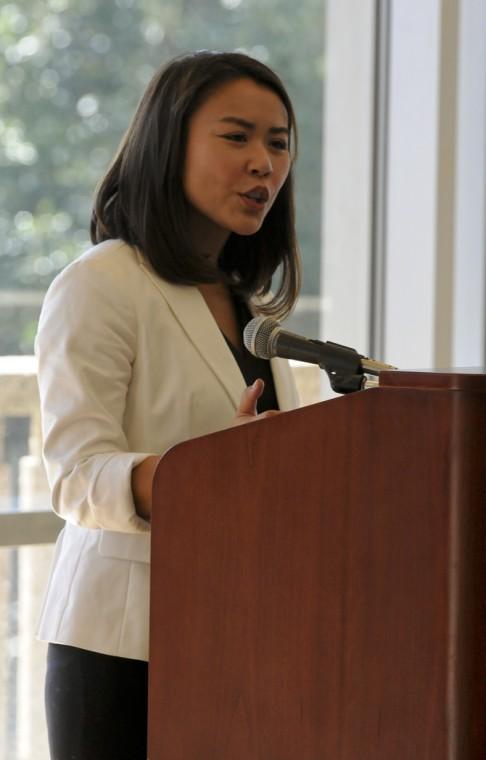Although topics like homosexuality, civil rights and equal rights for women may have been taboo half a century ago, students had the opportunity to speak openly about them at Saturday’s sixth annual Multicultural Student Leadership Conference.
“The best way to overcome those preconceived prejudices and misunderstandings about other people is to talk to them,” said the University’s Safe Space Campaign and LGBTQ Project Graduate Assistant Chad Freeman.
Many presenters focused on developing students’ leadership skills by discussing the challenges and opportunities within diverse populations. Sessions varied, but all of them emphasized the solutions leaders must cultivate to establish an inclusive environment.
One session showed students how the sociology of minority groups ranges from people with disabilities, to people with different religions, genders, sexualities and races.
In the LGBTQ community, there are some states where people can be fired for being gay, and bullying and violence has contributed to high suicide rates within the LGBTQ community, said Markita Lewis, a nutritional sciences junior and member of several multicultural organizations.
Lewis said students should educate themselves by re-learning history and taking other cultures seriously to support and sustain differences.
Students also attended a session providing advice for women in their 20s searching for their identities within today’s society.
“Ninety percent of twenty-something women say their career is the biggest stressor in their life,” said Jessica Sanders, academic adviser for the University’s Honors College.
Several issues were addressed, including the glass ceiling effect when a woman’s earning potential is capped, or the glass cliff where women in senior offices are forced out sooner than men. But other pressures could affect women, Sanders said.
Castel Sweet, doctoral sociology graduate, said she attended the session to learn if she’s navigating her life properly to reach her goals. While she’s never encountered the glass ceiling effect, Sweet said it is something of which she should be aware.
“Knowing that I will someday get out on that job market and that it is an issue, and by doing things and just being secure with myself, I won’t allow it to hinder my personal dreams and the things that I want to do,” she said.
Sanders told students to find their motivation behind their goals in additional to identifying them. She also urged students to find diverse mentors to help them with different aspects of their lives.
The need for mentorship was also addressed in sessions presented by the Black Male Leadership Initiative, also known as the BMLI. In their session, the BMLI discussed the stereotypes and statistics affecting the retention rates among black male college students, as well as how to increase the number of black males in college.
Students expressed that part of the problem involved the stereotype that black males only access college through athletics, and some agreed that more exposure of non-athletic black males would benefit predominantly white colleges, or PWIs.
University events like Preview Day successfully draw in many black males, said Chaundra Allen, director of the Office of Multicultural Affairs.
“Last year, we had 90 black males. This year we have 193 registered,” she said. “We had to close registration. We could not keep up with the demand of the program, and I think it’s a good problem to have, but I do think there has to be more programs like Preview Day and not just at LSU, but at other campuses to expose people to college early.”
‘The best way to overcome those preconceived prejudices and misunderstandings about other people is to talk to them.’






